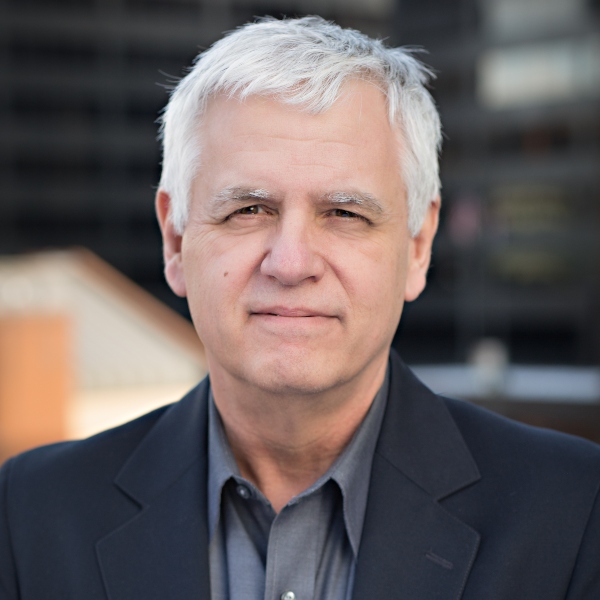The Coronavirus is a Stress Test on Truth
It ain’t what you don’t know that gets you into trouble.
It’s what you know for sure that just ain’t so.
- Unknown; often attributed to Mark Twain
Like so much else on the planet in the last two weeks, the novel coronavirus COVID-19 has trashed best-laid plans for the article I was drafting. I was going to write a synopsis of research I have been doing into mythos and how we use stories to shape our beliefs and, ultimately, our actions. I had no idea that we would be thrust into an all-encompassing real-time experience of how our divergent approaches to truth and values affect the way we analyze, plan, organize, and execute — and ultimately succeed or fail — when confronted with an undeniable global force of nature.
By now, one-fifth of the way through the 21st century, it should be a complete no-brainer that humans base our policy decisions on the most rigorous analysis of the most reliable data that we can. But it’s not and the reason is that scientific conclusions often clash with our pre-existing beliefs and when they do, pre-existing beliefs win most of the time.
There are many theories of truth and it is not my purpose here to argue them. Leaving aside matters of faith, for this article I want to talk about the idea of truth in just two dimensions. One encompasses things that would be true whether we believe them or not, indeed whether or not humanity even existed. There are 365 days in a year on Earth; that’s true no matter whether we like it or not, whether we believe it or not. Let’s call this kind of truth objective truth.
It is also true that there are seven days in a week. You can ask just about anybody in any country on earth and they’ll tell you the same thing — the days may have different names but there are seven of them. But the truth of a seven day week is not the same as the truth of a 365 day year. There are seven days in a week only because we all agree to believe it; it could be six, eight, or a dozen just as plausibly as long as we all agreed to believe that. Let’s call this subjective truth.
(To be clear, I do not question either the validity or the importance of subjective truth. It is our ability to accept these shared agreements that allows human society to function. Where we do not know an objective truth we fill in with a subjective truth. There is nothing wrong with this; what else can we do?)
Objective and subjective truth each have a role to play as we order our world. The danger emerges when we begin to confuse the two. When we forget that some things are true only because we all agree on them and start believing that they are true in and of themselves, we risk closing off new avenues of inquiry and growth. We lock ourselves into a status quo that is no longer optimal for meeting either the challenges or the opportunities of an ever-evolving world.
Objective and subjective truth each have a role to play as we order our world. The danger emerges when we begin to confuse the two.
Here’s an example of what I mean: American culture has historically championed the common man. In recent years, especially, many have taken the shared belief that the common-sense of ordinary people yields better decisions than the analysis of experts and raised it to the status of unquestioned truth. Given the disparity of approaches to COVID-19 adopted across the country, we should see shortly how well that works out.
Here’s another: It has come to be unquestioned truth that businesses must always be as efficient as possible, and we have spent 40 years optimizing processes and driving supply chains to just-in-time production that will deliver the maximum possible returns to shareholders. This has become so “true” that you’re probably at least a little shocked to see it called into question. But anyone who has been in a supermarket lately has already seen that it didn’t take a week for those finely-tuned supply chains to collapse in the face of an event that disrupted their smooth operation. A little fat in the inventory might indeed reduce profits but it certainly would come in handy now. It’s not that these beliefs are untrue, it’s that they are not universally true beyond question the way, say, the law of gravity is. The problem is not that they are “the way things are.” It’s that we have come to believe they are “the way things must always be.”
Anything that is true only because we agree to believe it must always be subject to change by the same kind of human consensus that created it in the first place. I think it is an important role of science to keep this front of mind in the policy arena.
COVID-19 sharpens the focus on this difference. The mathematics of the pandemic is about as close to objective truth as we can get. Certainly, we can take action to alter the trajectory of the disease, but whatever trajectory it takes will have mathematics of its own, and we will see this in stark relief as the different approaches play out in different states. The point is not that the pandemic is inalterable, but that it does not need for us to believe it in order to proceed. Just the opposite, in fact — the less we believe it, the more it succeeds.
We cannot believe our way out of this crisis, no matter how much we might want to. We can always find a way to blame it on somebody, but that won’t solve the problem. We can’t talk our way out of it; we can’t spin our way out of it; we can’t make a deal with it. An objective truth problem demands a solution that contemplates the biology, the mathematics, the medicine, the demography, and any other store of human knowledge that will contribute meaningfully to an effective response.
The COVID-19 pandemic presents the most prominent, the most urgent, and by far the most immediately compelling need for objective solutions, but it’s far from unique in that respect. My fear here is that our society has grown intellectually complacent. Not only have we confused subjective truths with objective ones, in far too many cases we have allowed known objective truths to be obscured and even replaced by subjective ones. In doing so, we have weakened our capacity to respond to real crises like COVID-19 in a timely and effective way. We have also hampered our capacity to build expertise and tools that will allow us to anticipate and manage crises (not to mention opportunities) in the future. We have downgraded the importance of science in policymaking at least for the short term, but very possibly with long-term implications as well.
Anything that is true only because we agree to believe it must always be subject to change by the same kind of human consensus that created it in the first place.
As scientists, science educators, journalists, engineering or technical professionals, or anyone with a significant interest in science, this should both alarm and energize us. We all have a role in making sure that we not only promote the importance of science in policy today, but that we also build our truth-seeking capabilities for the future.
We must be mindful that in democratic societies, scientific solutions must usually win the support of the general public. As the frontiers of science become ever-more specialized and ever-more advanced, they grow farther and farther from the daily reality of most people’s lives and harder and harder to understand. What people don’t understand, they usually either fear or ignore – not the best starting point for policy support. It is also our role to present information that is accessible to non-scientists, to build consensus by illustrating its relevance to daily life, and above all, to never condescend to people with specializations other than our own.
It is objectively true that the COVID-19 pandemic will end. We don’t yet know when or how, but it will end because everything does. When it does, we will spend untold hours determining cause, apportioning blame, and devising lessons to be learned, because that’s what we do as a society and as a species. But what, exactly, will we learn? Will it be that facts and knowledge matter, and that to be effective against a global objective problem, we need to band together to develop and implement a coordinated science-based solution?
Or, as the crisis recedes, will we go back to constraining our thinking to mesh with our own prior beliefs, first denying the problem and then muddling through with individual solutions only after it becomes, at last, undeniable?
![]()

Former Executive Director of the Global Energy Management Program at the University of Colorado Denver Business School
Disclosure statement:
The Institute for Science & Policy is committed to publishing diverse perspectives in order to advance civil discourse and productive dialogue. Views expressed by contributors do not necessarily reflect those of the Institute, the Denver Museum of Nature & Science, or its affiliates.
